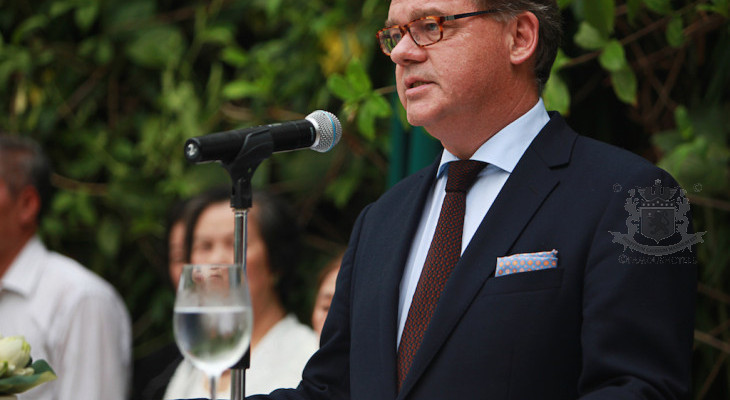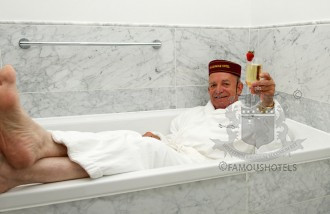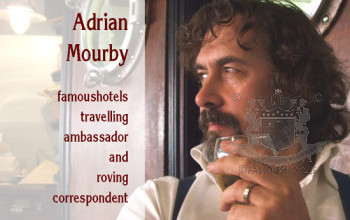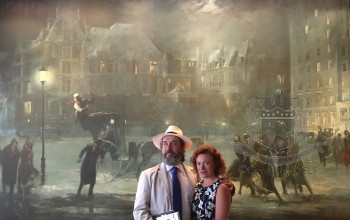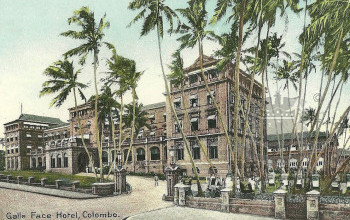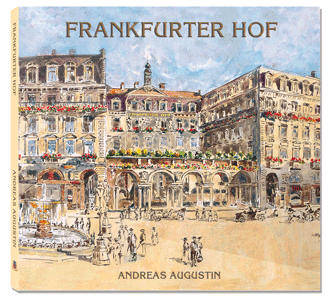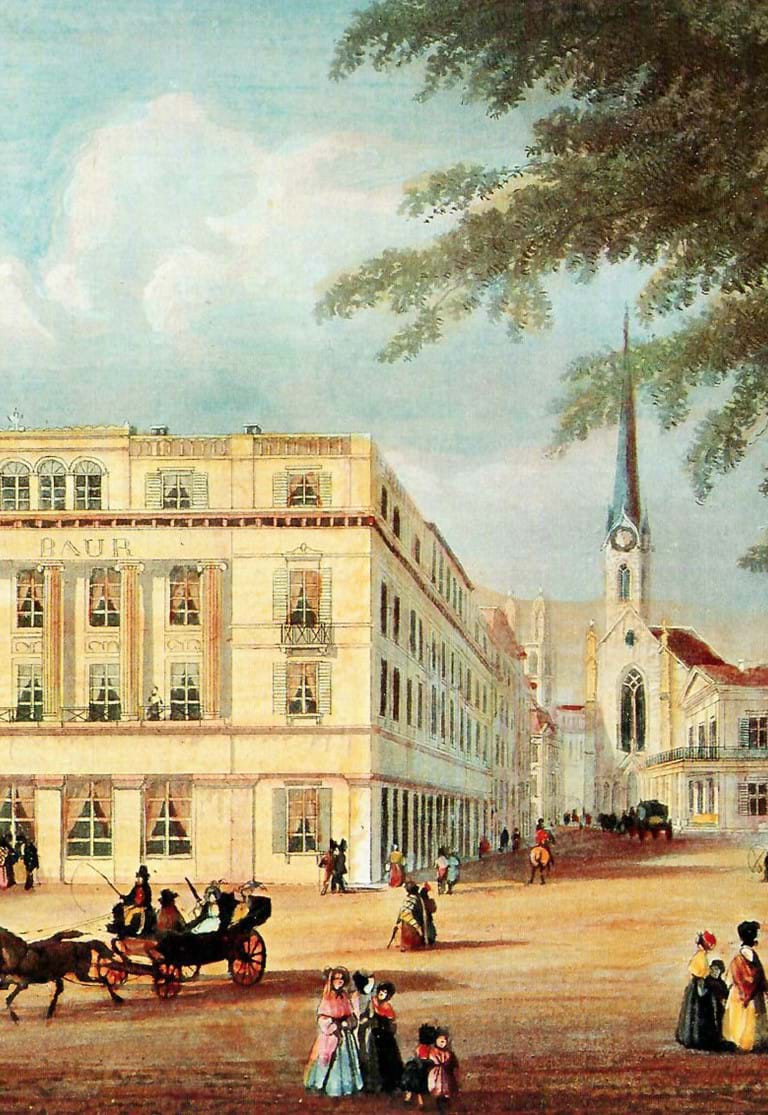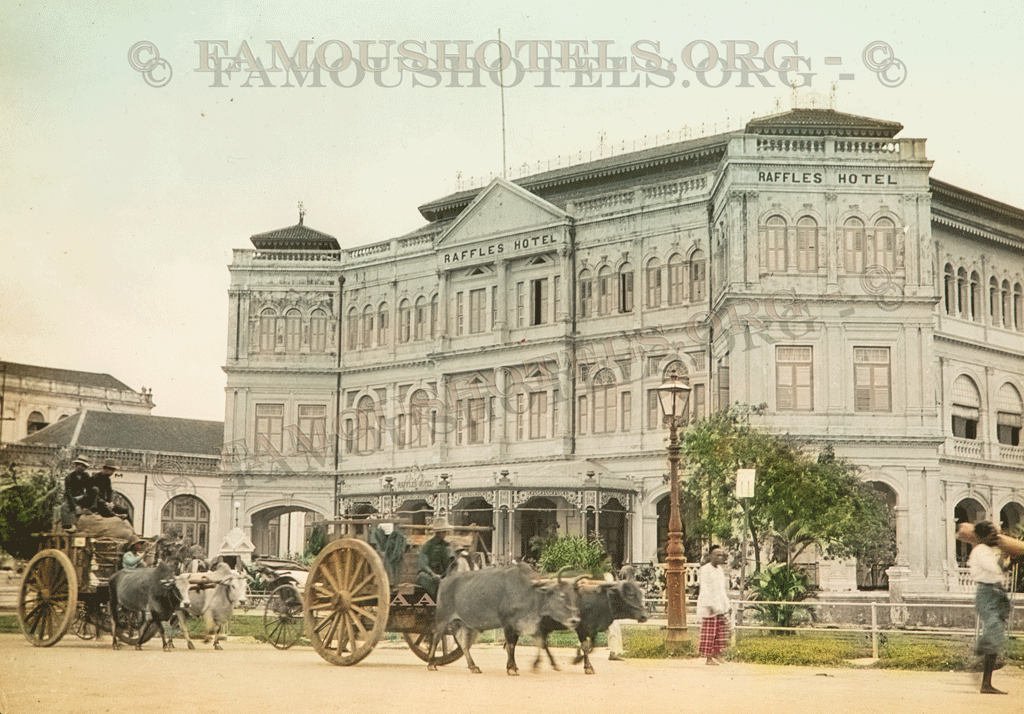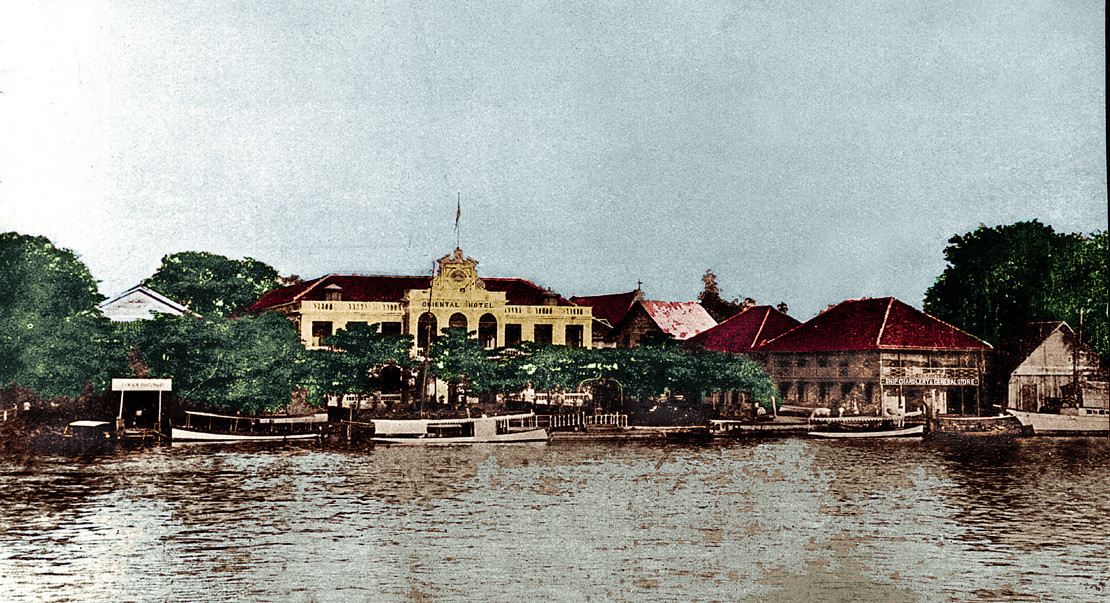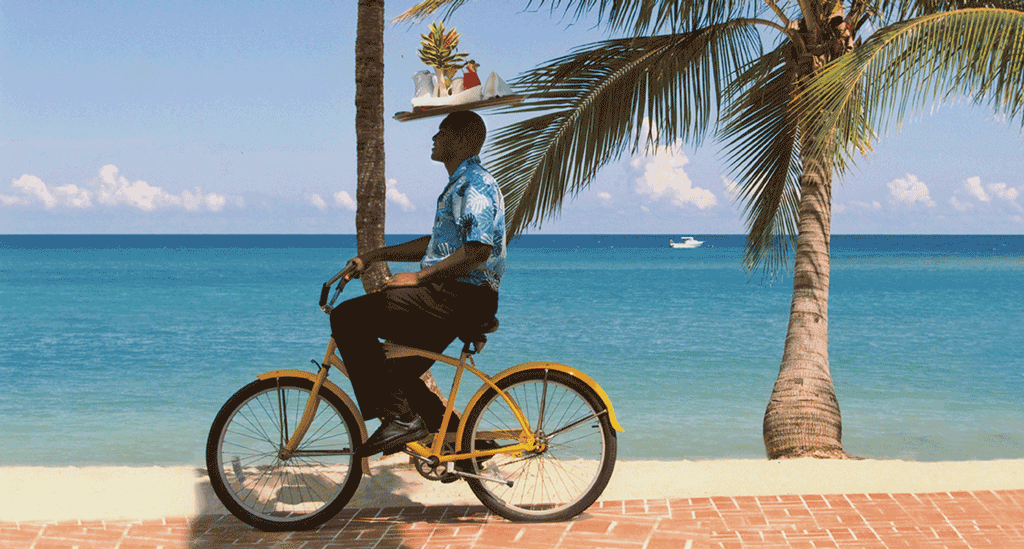Andreas Augustin: Speech at Launch of Edinburgh Caledonian book
( words)
At the occasion of the launch of the book The Caledonian Edinburgh, Andreas Augustin held this speech in 2004
------------
Dear Lord and Lady Provost, Eric and Janice Milligan,
Dear Alex Pagett,
Dear Alali Larbi, Area Vice President of Scotland and Ireland
Dear Ms Dagmar Muhle,
My dear ladies and gentlemen,
Let me too welcome you all to this cosy and very compact book launch. For all who cannot see me, you are listening to the voice of a man, who has the pleasure to take care of historic hotels. My Name is Andreas Augustin and I am representing an organisation with the modest name The Most Famous Hotels in the World. We like to see us as the keepers of hospitality history; we are in fact collecting material of every established hotel in the world and are holding the largest archives of historic material.
We have published the history of over 20 hotels such as The Oriental in Bangkok or The Peninsula in Hong Kong and The Savoy in London. Currently we are working on the story of The Kämp in Helsinki, The Mena House in Cairo, The Grand and the Excelsior in Rome, to name but a few of our current duties.
Only a privileged few hotels – 317, to be precise – are allowed to bear the title A Select Member of The Most Famous Hotels in the World. This title cannot be bought. It is an honour. The Caledonian always was one of them.
The fact that youall have come shows me that the magic still works. I am talking about the unrivalled charisma of a grand hotel. The appeal of such an institution, as we can call it, is sensational. If the walls could talk we would be listening day and night.
The Most Famous Hotels in the World has been founded to make walls talk, to precisely research the history of a grand hotel and to help a hotel to turn its history into a powerful tool of marketing.
This December this hotel will be guarding the west end of Princes Street for one hundred years. It is ‘just’ not the oldest of the two in Edinburgh; the Balmoral at the other end of Princes Street is a few months older.
I am not going to tell you the story of the Caledonian, that’s all in the book and I do hope you will read it. I am going to tell you about the people who made this book – both – possible and in fact – a success. You might say: how can he be so sure that the book is going to be a success? The answer is as easy as it is optimistic. Failure is an orphan. Success has many fathers. This one, I bet, is a success as it has lots of fathers.
Gender-wise correct we would have to start with the mother. It was Dagmar Muhle who suggested producing the history of the Caley. Edinburgh Evening News columnist John Gibson suggested Roddy Martine, the author of over 20 books, to be the best man to come in – and a wonderful cooperation began. I personally was in particular delighted. We decided that we would be co-authoring this book. The duties were split in a fair manner: Roddy would do all the research, all the interviews with guests and with former members of the staff, he would collect the old photographs, browse his and all the public archives, write all of the text including the captions, mention me various times as the co-author and send everything over when it is ready. The idea behind this equal distribution of the workload was that he would be doing the first one hundred years, while I was concentrating on the rest.
To make me feel even more comfortable with my responsibilities he took me around Edinburgh in his car, showed me the city and the vicinity, explained to me strange things like the Holder of a Quaich, the weird and wonderful sounding name Firth of Forth and he signed all mails to me with Yours Aye Roddy, which I only recently translated into Yours Always, after having purchased the three volumes encyclopedia Everyday Scottish: An English Dictionary.
At that time Roddy still worked on his book Supernatural Scotland. With the politeness of a patient guest I spent long evenings listening to tales of ghostly castles guarded by black stallions, of fairies and Small People on Skye, not taller than a table, and haunted graveyards. It was one of the rare surprises in life that we did not hold our meetings on the cemetery across the road. I think the reason was that the bar at the Caledonian is more fun, and most of the time not as crowded.
I have learnt that modesty was a Scottish habit, because if the Scots would not be as modest as they simply are, they would be busy all the time telling the rest of us that they have given the world the bicycle, Sherlock Holmes, x-ray, pneumatic rubber tyres, the telephone, a solid theory of political economics, Whisky, the separate condenser for steam engines, road surfaces, the first use of chloroform, the mineral oil industry, the discovery of the connection between electricity & magnetism, penicillin, television, radar. With the exception of Dolly the Sheep I like to ask you: where would the world stand without the Scots? All this, of course, did not go down unnoticed: Although the Scots comprise less than half a percent of the world’s population, 11 percent of all Nobel prizes have been awarded to them.
I would like to give a personal Nobel Prize to the people who are working at The Caledonian. This impressive collection of bricks and mortar, glass chandeliers and woven carpets, would be a sole-less house without them. And the book would have quite a number of fathers less. They all helped tremendously in shaping this book, some of them turned up on their days off to bring in old picture material, original menus from bygone days and other pieces of memorabilia. It was a pleasure, an honour to work with them. You see, the list of ‘fathers’ is reassuring long.
Last but not least I wish to thank another father of this success, the Hilton Company. It was with the acquisition of the Waldorff Astoria in New York that Hilton, like many other hotel groups, has started to safe the life of various historic hotels around the world. In London, they have recently taken over the management of the legendary Railway Hotel The Great Western Royal in Paddington and for much longer they are preserving the wonderful Langham, London’s oldest historic grand hotel. The general manager of this hotel, Armin Schroecker, sends his best wishes for today’s jubilee, by the way.
Preservation is the right word, if we agree that we have to guard the fire, not the ashes. Constant renovation is part of this concept; new amenities must be added all the times, as hotels were always creative forerunners for innovative ideas. Today it is wireless Internet access in the lounge downstairs, and one day the hotel business might even be able to solve the industry’s greatest challenge and have room service deliver a breakfast egg that’s not over- or undercooked.
Finally I wish to thank you, dear ladies and gentlemen. It is you, the guest, who makes all this possible. Let us all work together to keep the legends alive by constantly challenging these grand old ladies of hospitality to remain what they are: Grand Hotels.
Thank you.

